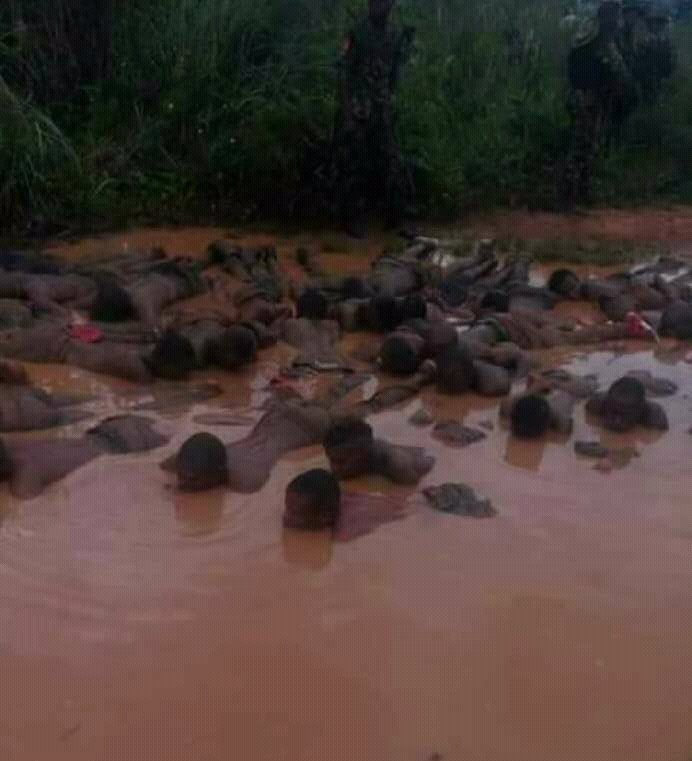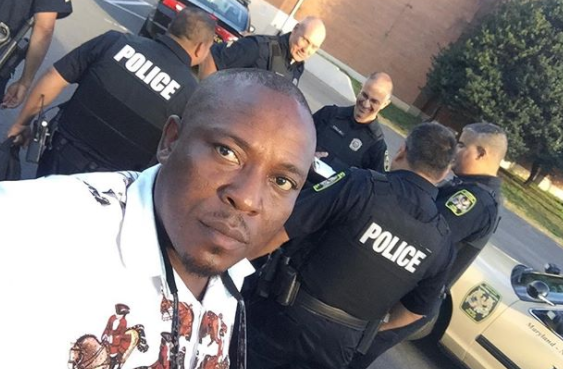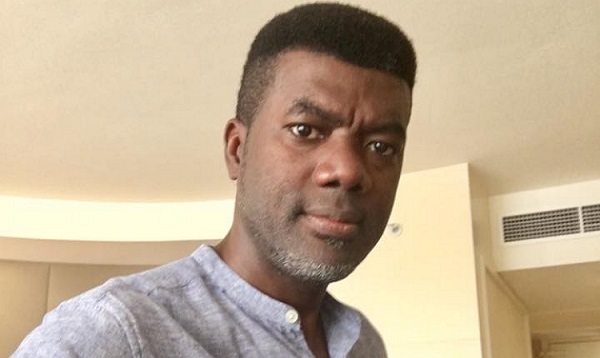The inspiration for this piece came from a poem written by a young poet and final year Law student of the University of Ibadan, Kunle Adebajo entitled Goodbye, Murderland. The poet lamented why the tree was rendered fatherless like an oak at autumn and why “mothers are murdered and slaughtered for their daughters to watch”.
Between Adebajo and Daniel Canodoce, popularly known as Can Themba, a young Marabastad-born South African writer who died in 1968 at the age of 44, was hemmed Nobel prize in literature winner, Wole Soyinka. If the number of times citations are made of an artist’s work approximates African invocation of the spirits of the dead, this writer’s excessively frequent intrusion into Themba’s graveyard to cite his short story, The Dube Train should have worn out his spirit.
Anyway, Themba, a drunk of renown, literary prodigy and journalist with the Drum, alongside Nat Nakasa, was one of South Africa’s journalists who blended journalism with creative writing. They were part of the black apartheid era young writers who lived by the weird dictum, “Live fast, die young and have a good-looking corpse.”
The narrator prefaces The Dube Train with a description of fellow commuters as “sour-smelling humanity;” exhibits his impatience with this “hostile life” and “the shoving savagery of the crowd.”
Advertisement
Using narratology, we are shown an early morning Dube township train coach to Johannesburg with commuters therein and a girl viciously assaulted by a tout – tsotsi. A woman upbraids the men as cowards for allowing the tsotsi have such a field day without coming to her rescue. The tsotsi pulls a knife as a muscular fellow commuterconfronts him but the sudden jerk of the train deflects the knife and pierces the muscular man.
All of a sudden, the stabbed man pulls the tsotsi and flings him out of the window, ostensibly to his death. Themba ends the story by telling the readers that the murder of the tsotsi “was just another incident in the morning Dube Train” and the crowd “greedily relishing the thrilling episode.” With this, Themba explained the banality and ordinariness of death in the apartheid era.
Soyinka, during the week, like the narrator in Themba’s, also painted the picture of Nigeria’s sunken humanity. At the Christopher Okigbo 50th passing remembrance in Ibadan, he and John Pepper Clark expressed their deep concerns about how humanity receives scant regard of either government or his fellow men. The resultant effect is the Boko Haram persistent bloodletting and the various agitations across the country which they said were offshoots of a spate of mis-governance, poor leadership, and marginalization.
Advertisement
The gruesome murders of Nigerians by South Africans at the drop of a hat and the frequent murders that litter the land are what engaged this columnist today. We seem to have reached that crossroads painted in the Dube Traincoach where death of a fellow man does not pull a strand of air off us as a people. Governments have witnessed too many bloodshed to bother about another.
The dead are reckoned with only as a number. Newspapers no longer lead their pamphlets with stories of the casualty in Boko Haram insurgency because those are stale news. Perhaps astounded by the upswing in cases of bloodletting that hitherto sounded weird, virtually all newspapers now have what they call the Crime Page. On a daily basis, the pages are populated by stories of a man who had just sodomized a minor, son who just decapitated father, father who slept with his daughter, wife who invited assassins to murder her husband or a young girl on whom was found the head of a fellow man.
These indeed are not very comely times. In April, 2013, 185 civilians in Baga, Bauchi State, were murdered in one fell swoop. It attracted flaks of the world. While many Nigerians went about unconcerned, saner countries were outraged by this wanton wastage of human life. The massacre was said to have been brought about by violent clashes between the Joint Task Force (JTF) and Boko Haram insurgents which led to the rout of civilian women and children on the fringe.
Today, Operation Python Dance probably shed more blood in Abia State. We may never know them. 236 children and women in the IDP camp were killed after a Nigerian military jet “mistakenly” bombed a camp occupied by persons displaced by Boko Haram in Kala-Balge Local Government Area of Borno State. No eyebrows were raised.
Advertisement
Why you should bother is that you are a citizen of the community of humanity. It bothers this writer that Nigerians are no longer shocked at the shedding of blood. Indeed, we exhibit a sense of ‘you-may-go-jump-inside-the-River Niger’ when events of this magnitude occur and we don’t interrogate why our fellow beings are felled by avoidable cruelties. It only goes to underscore how we may be losing our humanity.
Blood is spilled today in such a peremptory manner that should concern us. But, are we aware of the spiritual implication of all this? Blood, with its very highly spiritual content, has a way of waging its own war. The writers of the bible acknowledged this when the blood of Abel was said to have cried unto the heavens. It seems to come back to me that the inexplicable stagnation of Nigeria all these years can be traced to wanton bloodshed.
I have searched frantically for the lure of the animalism today displayed by many South Africans, especially in the xenophobic attacks against Nigerians and my findings revealed a throwback to the savagery of apartheid. When you read stories of blood spillage and the ease with which South Africans hack fellow creations of God, remembrance of their recent historical development will bail you out of curiosity. Joseph Conrad of the Heart of Darkness fame may not be wrong after all.
It may be true that the Blackman has innate bestiality resident in his gene, just like William Golding’s Lord of the flies says. The Blackman only needs very little provocation to unleash his ape ancestry of savagery, like those little boys marooned on an island whose animalism takes the better part of them in the Golding classic.
Advertisement
Apartheid brought out the beast in South Africans. The moment the system defoliated the Blackman’s manhood, he became a little less than an animal and there arose no difference between his behavior and his ape ancestry. If you have ever read the history of the South African liberation struggle, you will discover that it is replete with macabre and a number of horrendous murders that a civilized world would never condole. In the name of global struggle to eliminate apartheid, many of those atrocities were excused and came to light seldom. The world focused, on the reverse, on the evil regime of Frederick de Clark and the atrocities of segregating white from Indians, black and coloured South Africans. The dastardly act of murdering fellow blacks who were perceived to have betrayed the liberation struggle in very horrendous manner never came to light to the whole world. Thus, we never knew how base and bloodless the hearts of our brothers were.
This writer has read many works of South African literature. Alex la Guma, Alf Wannenburg, Steve Biko, Mazisi Kunene, Ezekiel Mphalele engaged me. You will recall the trial of Winnie Mandela and the allegation of her involvement in the murder of some youths who went by the façade of a football club. The murdered boys were alleged to be squealing on the group and their liberation struggle. They were summarily tried by the Winnie boys, sentenced to death and executed. This is one of the thousands of gruesome killings that apartheid South Africa foisted on South Africans.
Advertisement
If you have ever read some of the works of la Guma, like A walk in the night, Quartet and In the fog of the seasons’ end, you will encounter the bestiality that apartheid wrought on the psyche of our so-called brothers. They lost their humanity in the process and became a little less than animals. In A walk in the nightfor instance, you will encounter District Six, a suburb of Johannesburg, home to all sorts of sub-human activities and why horrendous murder became part and parcel of the people’s existence. Mutual knifing, unprovoked arson, murders and all sorts were carried out with a clinical finish that will make a decent man shudder.
Umkhonto we Sizwe, the armed wing of the African National Congress (ANC) perpetrated a lot of criminal and horrendous murders that were swept under the rug, from the prying eyes of the world. Several South Africans accused of betraying the struggle were summarily executed and nobody heard of their deaths till today.
Advertisement
The totality of the apartheid experience has burrowed animalism in many South Africans which would be difficult to wean them from. If you see most of the killings in the xenophobic drive, you would see a throw-back to the gruesome killings of apartheid. For a people to blithely murder Nigerians who spent over $60billion to fund the anti-apartheid struggle, a Nigeria where Thabo Mbeki’s father hid from apartheid, a system that kills Zimbabweans who offered Nelson Mandela refuge from apartheid, who funded Umkhonto we Sizwe and where Albert Lithulu was born, those involved in xenophobia must have journeyed kilometers backwards into pre-history to meet our ape ancestors.
Same is playing out in Nigeria today. Bloodshed and murders are normal in the land. Our humanity is frozen and replaced by a cold animalism that is beyond compare. One just hopes that when we recover from our economic problem, Nigeria will recover her humanity and become sane again as member of the community of humanity.
Advertisement
Time to clone Fayose
As if gold is the graze that their herds devour at the Ilado, Akure, Ondo State Farm of former Secretary to the Government of the Federation, Chief Olu Falae, the farm has become a place to plunder by highly vilified Fulani herdsmen whose nuisance has become ceaseless objects of discourse in Nigeria. In August, some suspected herdsmen had laid siege to the farm, destroying crops said to be worth millions of naira.
Not long after, precisely this September, about 15 mobile policemen were said to have escaped death by the whiskers as herdsmen opened fire on them in Akure. Falae himself had earlier been kidnapped by these objectionable characters and at another time, one of his security men was killed. Also recently, a 72-year-old woman was gang-raped in the Odigbo area of the State and the hoodlums are yet to be brought to book.
This persistent violence calls for a firm governmental decision in Ondo State. It may not be a bad idea, in the spirit of integration, to borrow a leaf from the example of nearby Governor Ayodele Fayose of Ekiti. With the criminalization of borderless grazing in Ekiti State, criminal wolves in sheep’s clothing have fled the state. The only problem, I reckon, is that the deafening silence from the Aso Villa may be conceived by states like Ondo as indication that taking action against these criminals may rupture their patrimony from the federal patron.
Lie’s expiry
We owe a duty to ourselves, our children, and even children unborn to ensure that Minister Lai Mohammed does not unilaterally conscript us into a typecast of a people in whose gene reeks vicarious falsehood. While upbraiding government’s apparent nonsensical labeling of the Independent Peoples of Biafra (IPOB) as a terrorist group, Mohammed had unabashedly claimed that Jean-Michel Macron’s France was the financial headquarters of the notorious separatist group.
While expressing shock at this ostensible bland lie, Political Counselor of the Embassy of France, Clande Abily, had said that France had no knowledge of IPOB’s presence in France. Going by the consistency of lies and the culture of untruth that had almost become the middle name of government under the less-than Honourable ministry, France seems more believable of the two in this equation. United Kingdom too, in a very diplomatic riposte, had claimed ignorance that the Buhari government ever asked it to spike the nuisance radio of IPOB.
But why deploy lie when truth can do the magic? Loquacious Garba Shehu, presidential spokesman, had also claimed that government didn’t proscribe the lethal herdsmen because they were merely criminals and not terrorists. If one must give Shehu’s irritating doggerel a consideration, criminality breeds terrorism because both are not messengers of peace. If Buhari had given the rampaging Fulani herdsmen same tackle as he gives IPOB, violence would have abated significantly in the land.
For Goke Oladinni @ 70
Someday soon, this writer would dwell on squash, an indoor game that is his addiction; how, inside the court, the game is the mirror on the wall which shows the totality of the life of its players. While writing it, I will talk about the thread that links General Sani Abacha, Olusegun Obasanjo, David Jemibewon, good squash players who, the moment they entered the court, you could download all their qualities outside which the world talks about.
Anyway, those are stuffs for another day. One very good squash player celebrated his 70thon Friday, September 22, 2017 in Ibadan, Oyo State capital. He is a prince of Ile-Ife, SookoGoke Oladinni. Like every player of the tiny black ball, the prince is addicted to squash. Though his squash strokes are like the strokes of music which Bob Marley says when they hit you, you feel no pain, the strokes however come without empathy on his opponent.
Chief Oladinni, outside the court, operates a live-and-let-live life. In the court, he allows you have your points, products of your sweats, but determinately pursues the points he feels are within his grips. Outside the court, that too is Oladinni. He is fatherly and has a purity of heart. At his birthday reception on Friday, his cake was a squash ball and racquet! Up I raise my wine glass and shout 70 happy cheers to the Chairman of Princeton Health.
Add a comment







